#Oak gall wasp
Explore tagged Tumblr posts
Text
Okay, so this is really cool! You have this phenomenon where some plants grow edible appendages to their seeds to entice ants to carry them underground where they can safely sprout. And then you have wasps which lay their eggs on the leaves, stems, and other parts of plants and trigger the growth of galls (swellings) which both feed and protect the wasp larvae until they reach maturity.
The boy who was watching the ants noticed they were taking wasp galls underground, too. Further exploration found that the wasp larvae were unharmed inside the galls; the only thing the ants had eaten were edible appendages similar to those on the seeds they collected. The wasp larvae stayed safe inside the ant nest, feeding on their galls, until it was time to emerge and head back out to the surface.
So it turns out that the edible portions of the galls have the same sorts of fatty acids as the edible parts of the seeds. And those fatty acids are also found in dead insects. Scientists think that the wasps evolved a way to make the galls they created mimic the edible portions of the seeds to get the ants to collect the galls. This isn't the only example of wasps making use of ants as caretakers for their young, but it's a really fascinating example thereof--especially if you consider ants evolved from wasps at least 100 million years ago.
#wasps#ants#plants#galls#oak galls#insects#invertebrates#Hymenoptera#ecology#bugs#animals#wildlife#nature#trees#entomology#science#natural science#evolution#animal behavior
13K notes
·
View notes
Text

Happy gall week!! Here's a painting I forgot to put online anywhere
#gall wasps#bugs#inaturalist#blue oak#cynipidae#galls#striped volcano gall#urchin gall#disc gall#drawing stuff#acrylic#artists on tumblr
111 notes
·
View notes
Text

Some beautiful, fresh oak marbles. These are the creations of a gall wasp - Andricus kollari.
57 notes
·
View notes
Photo

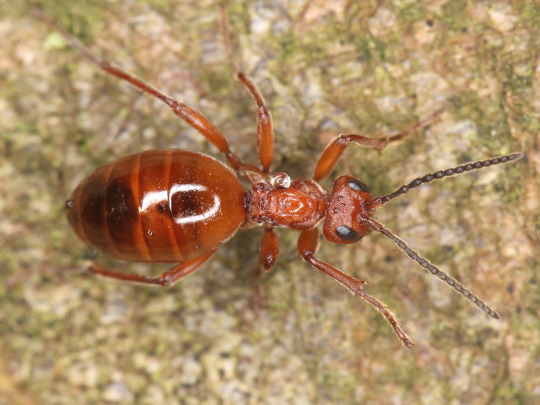
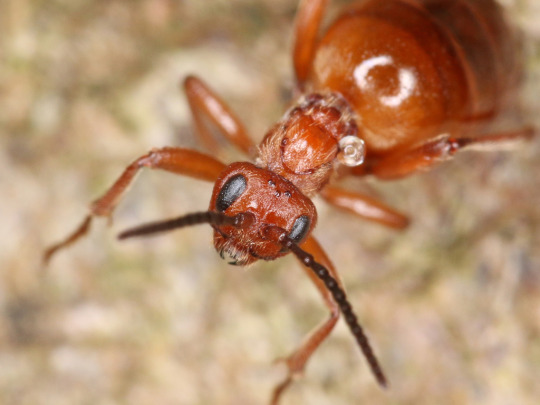
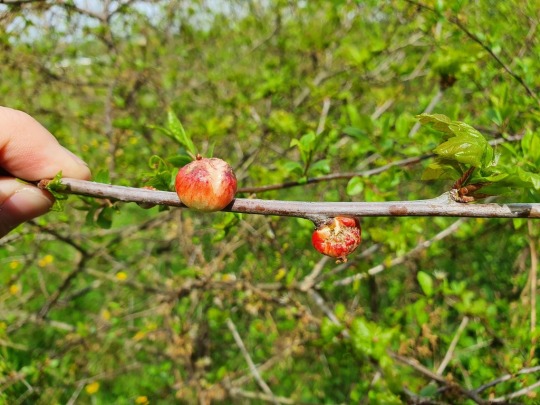

Oak apple gall wasp, Biorhiza pallida, Cynipidae, Hymenoptera
Pictured is a female oak apple gall wasp and the apple-like galls that form around her larvae in oak trees. This species is found throughout Europe. In addition to feeding and sheltering the oak apple gall wasp larvae, the galls house several other species of gall wasp and at least 20 species of hyperparasitoids that feed on the larvae.
Photos 1-3 by zmrdk, 4 by bclunie, and 5 by cedzz
#animals#curators on tumblr#insects#bugs#wasp#gall wasp#gall#oak apple gall wasp#one nice bug#dang it's crowded in those galls#also she is thick and beautiful wow
335 notes
·
View notes
Text

#photographers of tumblr#photographers on tumblr#photography#lensblr#original photographers#bay area#norcal#california#august#summer#oak tree#valley oak#red cone gall wasp#did you know those red thingies are wasps? they hatch from those#nature is amazing#nature#aesthetic
21 notes
·
View notes
Text




An Oak Gall Wasp's galls (Andricus weldi), they lack a common name it seems...
12 notes
·
View notes
Text

assorted bug doodles from memory
#bugs#bugs stuff#from top left to bottom right if youre interested:#solifuge#cellar spider#harvestman#one of those stanced moths#vague hymenoptera#woodlouse#random parasitoid wasp#moth based off one ive seen before#damselfly#oak leaf with assorted galls: two cherry two oyster and one striped pea#doros hoverfly#flatworm#art
3 notes
·
View notes
Text
Interesting new discovery!!
Oak wasps lay eggs on oak tree leaves. This stimulates the oak tree to form a gall around the egg. The gall eventually falls off (with the eggs inside) and are harvested by ants. These ants harvest galls because gall caps contain nutritious fatty acids. The ants bring galls back to their nest, take up the gall caps, and leave the remainder of the gall in their nest, thus protecting the egg from predators.
72 notes
·
View notes
Text

Scientific Name: Amphibolips confluenta Common Name(s): Spongy oak apple gall wasp Family: Cynipidae (gall wasp) Life Stage(s): Larva Location: Plano, Texas Season(s): Winter
This is what one of these looks like on the inside.
#Amphibolips confluenta#spongy oak apple gall wasp#Cynipidae#Plano#Texas#winter#brown#oak apple#gall wasp#Hymenoptera#gall#insect#bugblr
11 notes
·
View notes
Text





red cone gall wasps on valley oaks from my walk ~
#personal#blog#entomology#red cone gall wasps#oak gall wasps#valley oaks#nature walk#photography#insects#gall wasp eggs#bugs#diary post
5 notes
·
View notes
Text


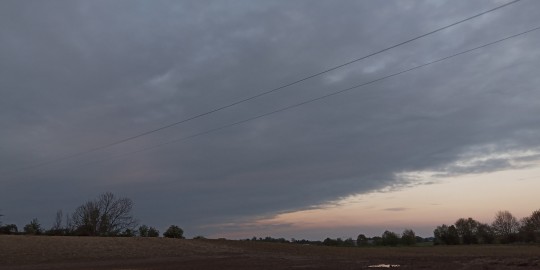
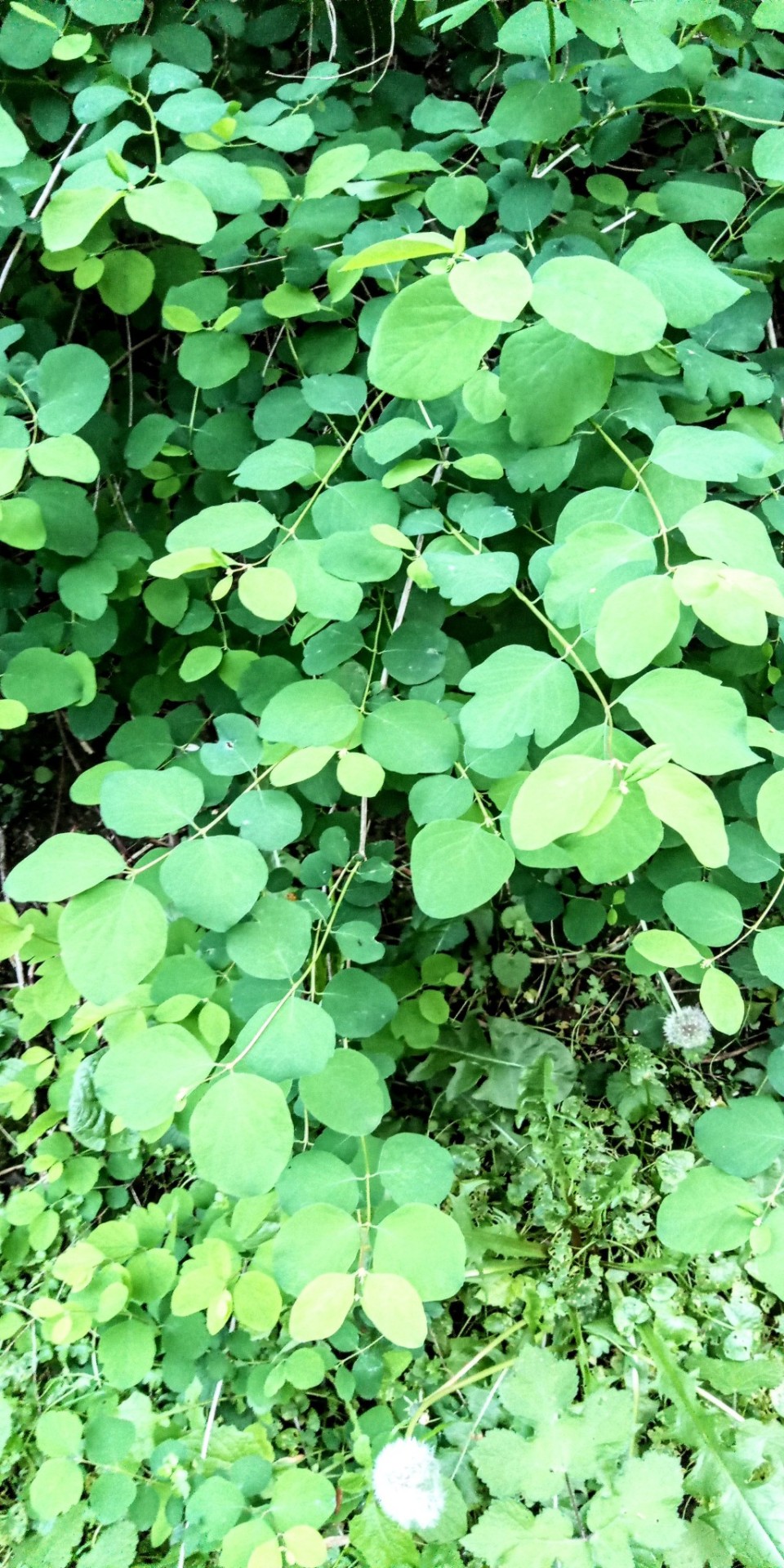
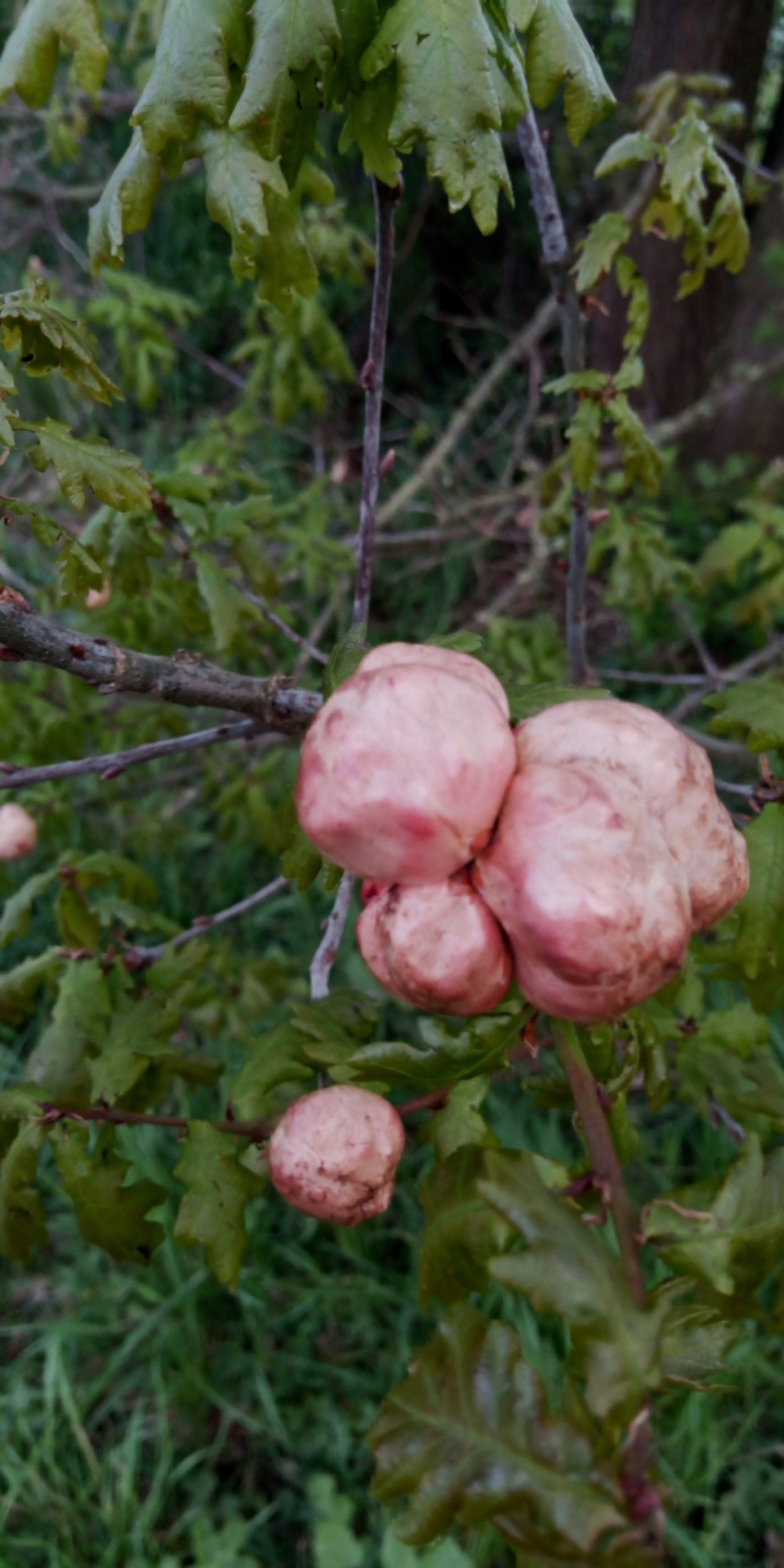
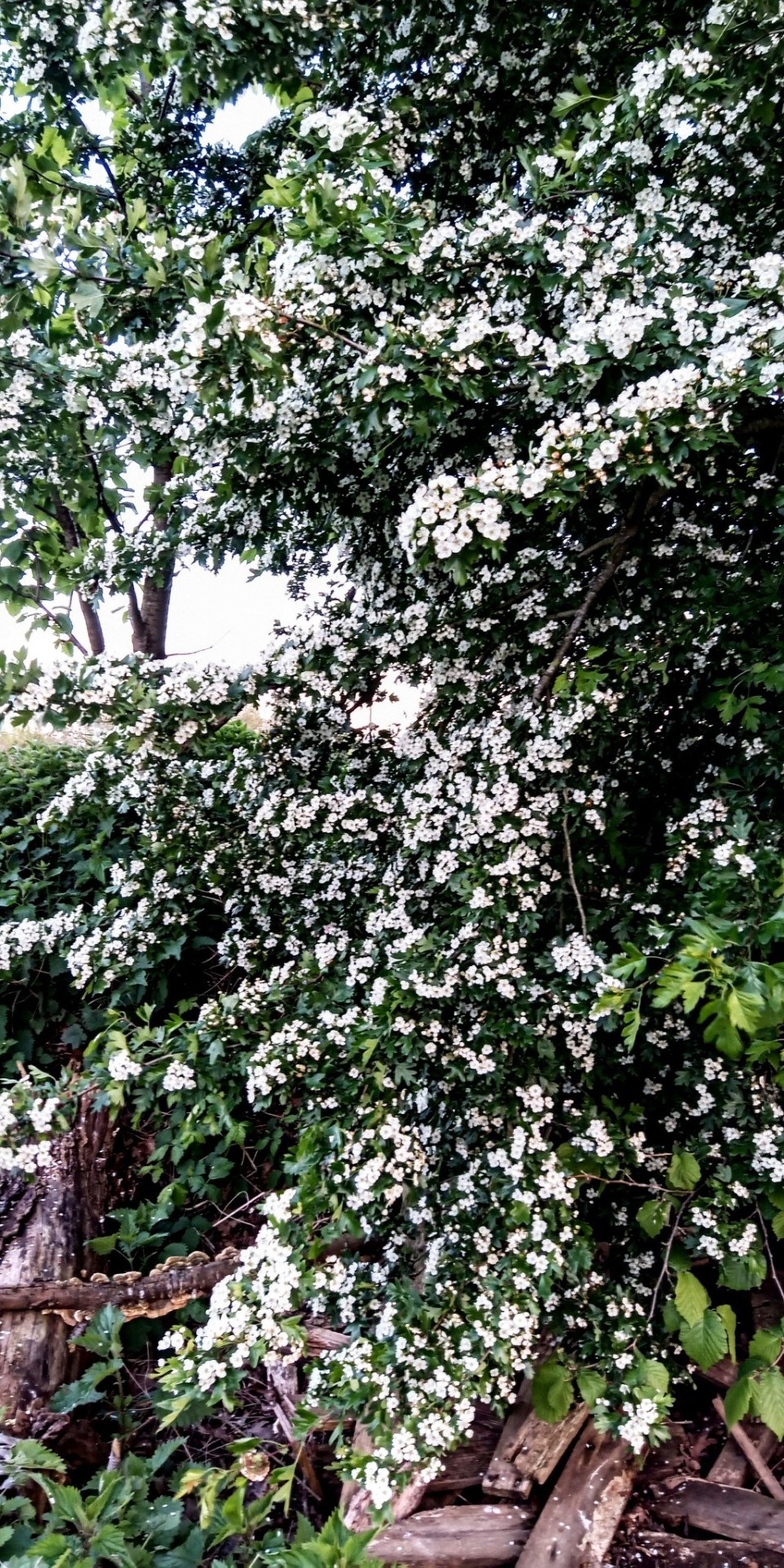




#my pictures#april#seasonal#full moon#oak apple#insects#sky photoset#sky photography#landscape photography#landscapes#sky pictures#plant pictures#evening sky#sunset#clouds#wasp#herb robert#gall nuts#hawthorn blossoms#of night and light and half light
3 notes
·
View notes
Text

It’s Tell a Friend Friday!
Please enjoy this photo I took of a an oak leaf featuring a very fuzzy gall made--unsurprisingly--by an oak gall wasp! the female wasp lays an egg in the leaf of an oak tree, which triggers the growth of the gall. The wasp larvae can then live inside the gall feed on it until they are ready to emerge as adults.
Then tell someone you know about my work–you can reblog this post, or send it to someone you think may be interested in my natural history writing, classes, and tours, as well as my upcoming book, The Everyday Naturalist. Here’s where I can be found online:
Website - http://www.rebeccalexa.com
Rebecca Lexa, Naturalist Facebook Page – https://www.facebook.com/rebeccalexanaturalist
Tumblr Profile – http://rebeccathenaturalist.tumblr.com
BlueSky Profile - https://bsky.app/profile/rebeccanaturalist.bsky.social
Twitter Profile – http://www.twitter.com/rebecca_lexa
Instagram Profile – https://www.instagram.com/rebeccathenaturalist/
LinkedIn Profile – http://www.linkedin.com/in/rebeccalexanaturalist
iNaturalist Profile – https://www.inaturalist.org/people/rebeccalexa
Finally, if you like what I’m doing here, you can give me a tip at http://ko-fi.com/rebeccathenaturalist
#oak gall wasps#oak galls#oak#oak trees#oak leaves#wasps#Hymenoptera#insects#invertebrates#arthropods#plants#trees#botany#Quercus#Tell a Friend Friday#nature#wildlife
22 notes
·
View notes
Text

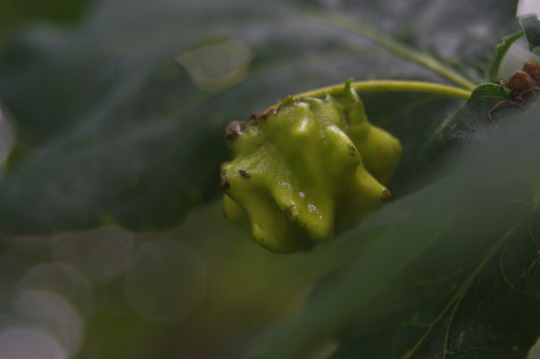
August 2021
#cottagecore#dark cottagecore#forestcore#rangercore#naturecore#trees#insect#wasp#galls#gall wasp#oak
9 notes
·
View notes
Text
Good Summer for Oak Galls!
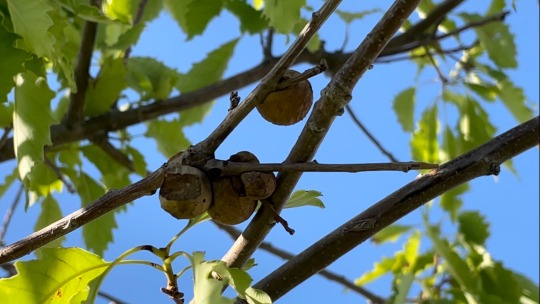
(Oak Marble Gall Wasp Photographed Summer 2023)
Oak Marble Galls are about the size of a marble and look a bit like an acorn without a cap (and growing on a branch)
Oak Galls are sometimes also called “Gall Apples” because it can resemble an apple-like structure on the branch

(Spongy Oak Apple Gall Wasp Photographed in Summer 2023)
This Spongy Oak Gall is about an inch or two wide (about the size of a small tomato)
Galls can grow on the underside of leaves or the branches of oak trees and depending on the species can range in appearances
Used traditionally to make permanent black ink!
#iron gall ink#oak galls#gall ink#black ink#diy ink#gall wasp#insects#Oak Marble Gall Wasp#Spongy Oak Apple Gall Wasp#entomology
4 notes
·
View notes
Text

#oak gall#gall wasp#cynipini#insects#pests#oak flowers#fallen flowers#quercus#flowering trees#microflora#forest floor#sveadal
0 notes
Text





I found a couple of Oak Apples in the yard, something had opened one up for better viewing...
Oak Apple Gall Wasp (Amphibolips confluent)
#nature#my photography#oak apples#nature photography#galls#wildlife photography#insect eggs#gall wasp#backyard nature#wasp#insect
9 notes
·
View notes